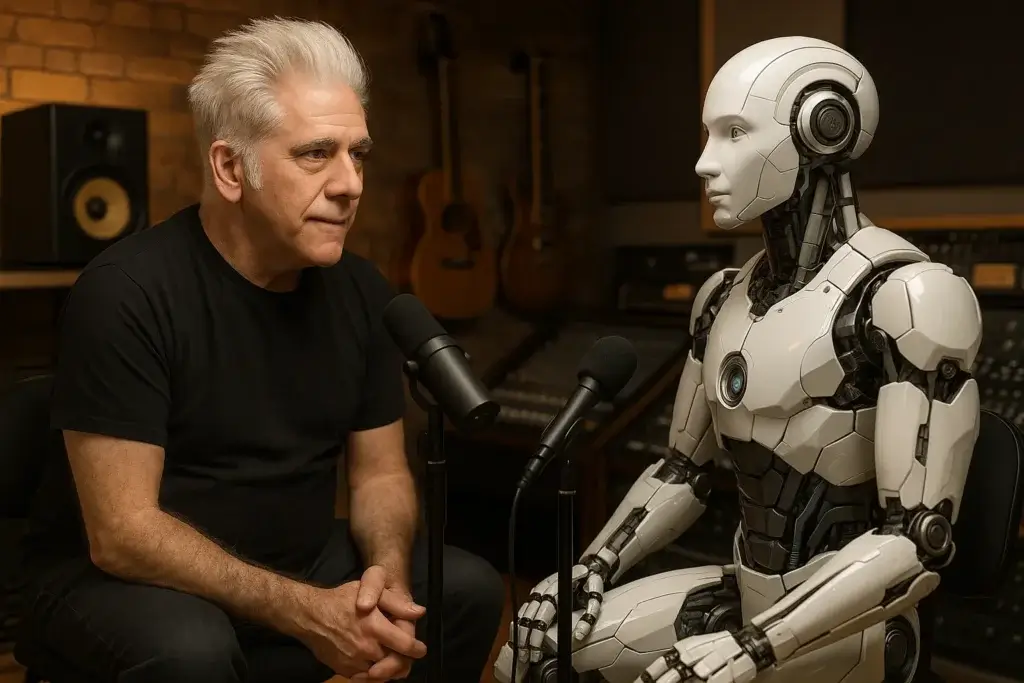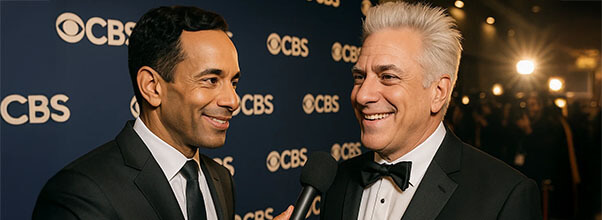Two weeks ago, CBS ran a video segment titled “AI-generated music sparks industry concern.” That single phrase set the tone. It framed AI not as a tool with potential upsides and downsides, but as a threat — specifically, an “industry concern.” The follow-up segment CBS aired a week later only doubled down, treating the reaction to their own reporting as proof of that concern.
On the surface, this looks like journalism. In reality, it functions as coordinated corporate advocacy.
Paramount’s Lawsuits
CBS is owned by Paramount Global. In August 2024, Paramount joined Sony, UMG, and Warner Music as a co-plaintiff in a federal class action against generative AI startups (U.S. District Court, Northern District of California, case 3:24-cv-06231). These cases allege that AI companies trained on copyrighted catalogs without consent, with billions in damages at stake.
So every time CBS News runs a piece portraying AI as an existential threat to music, it is also amplifying the litigation stance of its parent company. Yet viewers are never told: “Our parent company is suing over this exact issue.” No on-screen chyron, no host mention, no written disclosure on CBSNews.com transcripts.
Rick Beato’s Role
Both CBS AI segments featured YouTube personality Rick Beato as a neutral-sounding commentator. Beato is articulate, charismatic, and widely respected. But by his own Senate testimony in 2020, he has been signed to multiple publishing deals, most recently Sony/ATV — the publishing arm of one of the same label groups suing AI companies.
That fact was never disclosed on-air. Instead, audiences saw what looked like independent expert commentary. In practice, Beato’s professional ties place him squarely in alignment with the same rights-holders whose financial interests CBS is already amplifying. Even if his Sony/ATV deal has lapsed, no songwriter with industry ties is going to publicly rock the boat against the majors. Future publishing and co-writing opportunities depend on staying in line.
Beato’s Anti-AI Stance
Beato’s Senate testimony on November 29, 2023 — at a hearing titled “Artificial Intelligence and Intellectual Property: Part II – Copyright” — placed him on record nine months before Paramount, Sony, UMG, and Warner filed their lawsuits against AI firms. That timeline shows he wasn’t just offering personal concern; he was selected as a voice in the industry’s broader legal and lobbying campaign.
His positions line up point-for-point with the majors’ litigation strategy:
- Unauthorized training = theft. He argues that training AI models on copyrighted music without permission is mass-scale infringement.
- Human vs. machine. He frames AI outputs as hollow simulations, lacking the lived experience of human art.
- Legislative action. He urged Congress to force AI firms to license training data, create liability for infringing outputs, and ensure compensation flows to rights holders.
- Jobs at risk. He highlights how working musicians — session players, engineers, arrangers — are already losing income streams to AI-generated alternatives.
- Acknowledges inevitability. While conceding AI is here to stay, he insists it must be tightly regulated to protect existing creators.
In short, Beato’s role was to supply the moral and emotional narrative that underpins the lawsuits: a passionate, human-facing justification for the billions of dollars in damages the major rights-holders are now seeking.
The Foresight Failure: How Beato’s Argument Already Feels Dated
When Rick Beato testified before the Senate in late November 2023, he was arguing against a phantom. The AI music models he dissected were primitive, often producing uncanny-valley pastiches that were easy to dismiss as “soulless.” But just a month later, platforms like Udio and Suno would unleash a tsunami of consumer-ready experimentation—tracks that sound professional, flexible, and commercially viable.

This timing is critical. Beato’s framework presents a rigid binary: pure Human Artistry versus automated AI Generation. That dichotomy fails to capture the reality of human–AI collaboration, where the user acts as composer, producer, and creative director through the art of complex prompting.
Crafting a detailed prompt to generate a track is not passive. It requires musical vocabulary, arrangement skills, genre awareness, and iterative refinement—all quintessentially human abilities. In this model, the AI is the instrument; the prompter is the musician. This isn’t the replacement of the artist Beato fears—it’s the democratization of the orchestra.
By locking his argument into a 2023 mindset, Beato effectively advocated for a future where the only “safe” way to make music is the old way. That stance doesn’t protect creators from a robot takeover—it protects gatekeepers from a populist uprising. His testimony, now echoed in billion-dollar lawsuits, argues against a boogeyman: fully automated AI composition. Meanwhile, it ignores the disruptive truth that AI has not ended human creativity—it has handed it a radically new instrument.
The real threat to the old guard isn’t that AI makes music. It’s that it allows anyone, anywhere, to make music that sounds professional. And Beato’s premature advocacy risks sabotaging that revolution before it even begins.
The Echo Chamber Effect
This creates a feedback loop:
- CBS frames AI as a problem (“AI sparks concern”).
- Beato echoes that position, presented as neutral authority.
- Industry lawsuits benefit as public opinion tilts toward stricter regulation and higher licensing fees.
By the second video, CBS was already citing reactions to their own first segment as further proof that AI is dangerous — a circular argument that reinforces itself.
Conclusion: Why It Matters
This doesn’t mean AI poses no challenges for songwriters or musicians — it does. But we can’t have an honest conversation if the loudest voices are tied to undisclosed corporate interests. What looks like neutral journalism is in fact an advocacy campaign for legacy catalog holders.
Independent creators deserve transparency. If the future of music is on the table, the least we can ask is that the players with billions at stake admit they’re the ones speaking.
— Wolfshead




